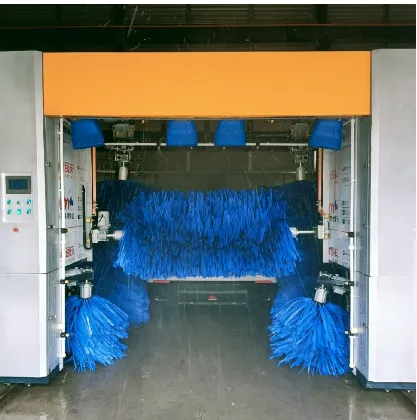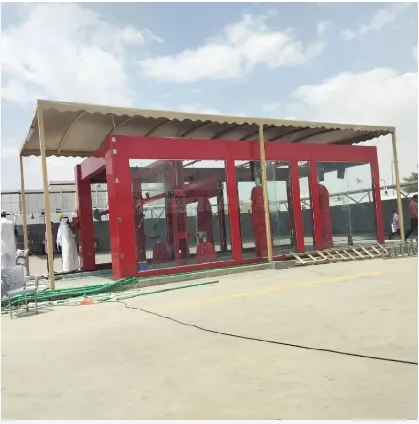
- Afrikaans
- Albanian
- Amharic
- Arabic
- Armenian
- Azerbaijani
- Basque
- Belarusian
- Bengali
- Bosnian
- Bulgarian
- Catalan
- Cebuano
- Corsican
- Croatian
- Czech
- Danish
- Dutch
- English
- Esperanto
- Estonian
- Finnish
- French
- Frisian
- Galician
- Georgian
- German
- Greek
- Gujarati
- Haitian Creole
- hausa
- hawaiian
- Hebrew
- Hindi
- Miao
- Hungarian
- Icelandic
- igbo
- Indonesian
- irish
- Italian
- Japanese
- Javanese
- Kannada
- kazakh
- Khmer
- Rwandese
- Korean
- Kurdish
- Kyrgyz
- Lao
- Latin
- Latvian
- Lithuanian
- Luxembourgish
- Macedonian
- Malgashi
- Malay
- Malayalam
- Maltese
- Maori
- Marathi
- Mongolian
- Myanmar
- Nepali
- Norwegian
- Norwegian
- Occitan
- Pashto
- Persian
- Polish
- Portuguese
- Punjabi
- Romanian
- Russian
- Samoan
- Scottish Gaelic
- Serbian
- Sesotho
- Shona
- Sindhi
- Sinhala
- Slovak
- Slovenian
- Somali
- Spanish
- Sundanese
- Swahili
- Swedish
- Tagalog
- Tajik
- Tamil
- Tatar
- Telugu
- Thai
- Turkish
- Turkmen
- Ukrainian
- Urdu
- Uighur
- Uzbek
- Vietnamese
- Welsh
- Bantu
- Yiddish
- Yoruba
Premium Car Wash Tunnel Systems for Sale - Efficient, Automated
- The Surging Demand for Automated Vehicle Cleaning
- Breakthrough Technologies Driving Modern Wash Systems
- Leading Manufacturer Comparison & Technical Specs
- Custom Engineering Solutions for Diverse Operations
- Real-World Implementation Case Studies
- Operational Cost-Benefit Analysis
- Selecting Your Optimal Car Wash Tunnel System for Sale

(car wash tunnel system for sale)
The Surging Demand for Automated Vehicle Cleaning
Automated car wash tunnel systems represent one of the fastest-growing segments in the vehicle service industry, with global market projections exceeding $4.2 billion by 2028 according to recent industry analysis. This explosive 8.7% CAGR growth stems from dual consumer demands: increasing vehicle ownership rates and heightened expectations for water-efficient, chemically precise cleaning. Commercial operators consistently report 40-60% higher throughput versus in-bay systems, making tunnel installations a strategic investment even amid economic fluctuations.
Environmental regulations continue to drive innovation, as 28 US states now mandate water recycling systems in commercial washes. Modern facilities consume just 15-20 gallons per vehicle - 80% less than traditional methods - while eliminating untreated runoff. This regulatory alignment combined with labor cost advantages positions tunnel systems as essential infrastructure for forward-thinking operators. Fleet managers increasingly favor facilities demonstrating consistent, documented cleaning processes with minimized human handling.
Breakthrough Technologies Driving Modern Wash Systems
Contemporary touchless car wash system architectures integrate multiple proprietary technologies achieving unprecedented results. High-velocity impingement systems now operate at 1,200 PSI with variable droplet sizes calibrated to vehicle contours, removing 98% of particulate matter without abrasion. Chemical injection has evolved into computerized titration systems where sensors measure contaminant levels and adjust pH-balanced solutions in real-time, significantly reducing chemical consumption while improving results.
Advanced tunnel configurations feature three-stage protection systems including:
- Ceramic shield application before washing
- Neutralizing rinse with deionized water
- Infrared curing for polymer sealants
These systems maintain 0.002mm coating precision using laser-guided applicators monitored by integrated AI cameras that adjust application patterns based on vehicle dimensions detected through LiDAR mapping.
Leading Manufacturer Comparison & Technical Specs
| Manufacturer | Max Throughput (cars/hr) | Water Recovery % | Footprint (ft) | AI Features | Price Range |
|---|---|---|---|---|---|
| WashTek ProSeries | 120 | 92% | 85 | Contaminant recognition | $215K-$287K |
| HydroDynamic Titan | 95 | 88% | 78 | Paint condition analysis | $198K-$259K |
| Cleantech V4 | 135 | 95% | 92 | Predictive maintenance | $273K-$352K |
| Autowash Synergy | 110 | 90% | 82 | License plate recognition | $235K-$298K |
Each system incorporates proprietary drying technologies ranging from turbine-blade air knives to directed heat systems achieving 98% dry rates without touch. Maintenance requirements average just 1.5 hours weekly per system with remote diagnostic capabilities included across all premium models. The Cleantech V4 leads with its integrated water purification loop requiring 50% less sewer discharge while exceeding EPA standards.
Custom Engineering Solutions for Diverse Operations
While standard configurations dominate the automatic car wash system for sale market, purpose-built solutions increasingly deliver competitive advantages. Urban operators with space constraints implement vertical stacking systems utilizing rotating platforms to maintain 70-car/hour throughput in 65% smaller installations. Fleet service centers commonly choose dual-conveyor systems with separate treatment tracks for different vehicle types - light passenger vehicles receive distinct treatment from heavy-duty trucks. Airport and rental facilities implement integrated undercarriage treatment stages addressing road salt corrosion with specialized nozzles targeting suspension components.
Leading manufacturers engineer bespoke systems featuring:
- Variable-speed conveyor adjustments (3-25 ft/min)
- Modular chemical stations accommodating 5-12 programs
- Hybrid touch/touchless configurations for heavy soils
- Custom payment integration with fleet billing systems
Regional climate adaptations include heated track systems for cold weather operations and supplemental rinsing modules for high-pollen regions. Industrial zones typically add specialized degreasers targeting oil residue.
Real-World Implementation Case Studies
Mountain View Car Care Center near Denver illustrates measurable benefits after transitioning from in-bay to touchless car wash systems. Following installation of a WashTek ProSeries tunnel, operational data demonstrated:
- 52% increase in daily vehicles served (from 82 to 124 average)
- 22% reduction in chemical expenses
- 76% decrease in customer wait times during peak hours
- Payback achieved within 14 months
Similarly, Coastal Fleet Services in Florida documented results after implementing a customized dual-lane system:
- Undercarriage treatment reduced corrosion claims by 63%
- Dedicated commercial vehicle lane processed trucks in 3.5 minutes
- Automated billing saved 18 staff hours weekly
These implementations highlight how matching specific tunnel configurations to operational profiles maximizes returns. Coastal's solution incorporated high-clearance portals accommodating box trucks while implementing specialized cleaning agents appropriate for coastal environments.
Operational Cost-Benefit Analysis
Comprehensive financial modeling reveals that tunnel systems require significant capital investment but deliver superior lifetime value. Base operational expenses average $8.22 per vehicle across labor, utilities, and consumables, compared to $11.60 for in-bay automatic systems. More significantly, the automated nature enables operators to maintain service consistency regardless of staffing challenges - a critical advantage amid current labor shortages across the service sector.
Revenue projections based on industry averages:
- Premium washes account for 68% of tunnel revenue ($18-25/service)
- Membership programs boost utilization to 72% capacity average
- Ancillary services (ceramic coating, odor removal) add 22% revenue
Maintenance contracts represent advisable investments at $8,500-$14,000 annually, preserving manufacturer warranties while preventing operational downtime. Lifecycle analysis demonstrates that well-maintained tunnel installations deliver 12-15 years of peak performance before requiring major component replacement.
Selecting Your Optimal Car Wash Tunnel System for Sale
Identifying the right automated car wash system requires evaluating operational parameters beyond budget alone. Site constraints significantly influence configuration choices - facilities with less than 100 feet of linear space often benefit from compact rotary designs, while high-volume locations require multiple loading bays to prevent entry-point bottlenecks. Water chemistry analysis remains essential before installation; hard water exceeding 10 grains/gallon necessitates additional filtration stages not included in standard packages.
Future-proofing considerations include selecting systems compatible with emerging technologies such as EV-specific treatments addressing battery cooling components and adhesion-focused cleaning algorithms for wrap-maintenance. Leading manufacturers provide site assessment services including laser mapping and soil analysis to determine optimal chemical programs. Service agreements should guarantee 3-hour emergency response windows with loaner systems available for extended repairs. Evaluating these factors ensures the tunnel car wash system acquired delivers maximum longevity and adaptation capacity as market demands continue evolving.

(car wash tunnel system for sale)
FAQS on car wash tunnel system for sale
以下是围绕核心关键词创建的5组英文FAQ问答,使用HTML富文本格式:Q: What is a car wash tunnel system for sale?
A: A car wash tunnel system is an automated conveyor-based solution that cleans vehicles sequentially through multiple stations. These comprehensive systems typically include pre-soak, high-pressure washing, rinsing, and drying modules. They're designed for commercial operators needing high-volume processing.
Q: How does an automatic car wash system for sale operate?
A: Automatic systems use programmable controllers to move vehicles through cleaning stages without driver assistance. Sensors guide equipment like rotating brushes, foam applicators, and blowers around the vehicle's contour. This automation ensures consistent results with minimal labor requirements.
Q: Why choose a touchless car wash system for sale?
A: Touchless systems clean using precisely aimed high-pressure water jets and specialty detergents without physical contact. This prevents scratches on delicate surfaces and preserves vehicle finishes. Advanced models feature water recycling and spot-free rinse technologies.
Q: What maintenance does a car wash tunnel system require?
A: Daily inspection of nozzles, fluid levels, and conveyor components is essential. Quarterly servicing should include pump maintenance, bearing lubrication, and software updates. Using OEM chemicals prevents equipment corrosion.
Q: What installation space is needed for these systems?
A: Tunnel systems require 100-150 foot linear space for the equipment itself. Add staging areas for entering/exiting vehicles and chemical storage rooms. Minimum 14-foot ceilings and reinforced concrete foundations are recommended for optimal operation.
-
Safe and Effective Use of Auto Detailing Pressure WasherNewsJun.04,2025
-
Overcoming Challenges in Operating Automatic Car Wash Equipment for SaleNewsJun.04,2025
-
Maintenance Tips for Car Under Wash MachineNewsJun.04,2025
-
Energy Efficiency Upgrades for Modern Car Wash Tunnel EquipmentNewsJun.04,2025
-
Eco-Friendly Car Detail Equipment For Sale Revolutionizing the IndustryNewsJun.04,2025
-
Customizing Automated Car Wash Brushes for SaleNewsJun.04,2025



